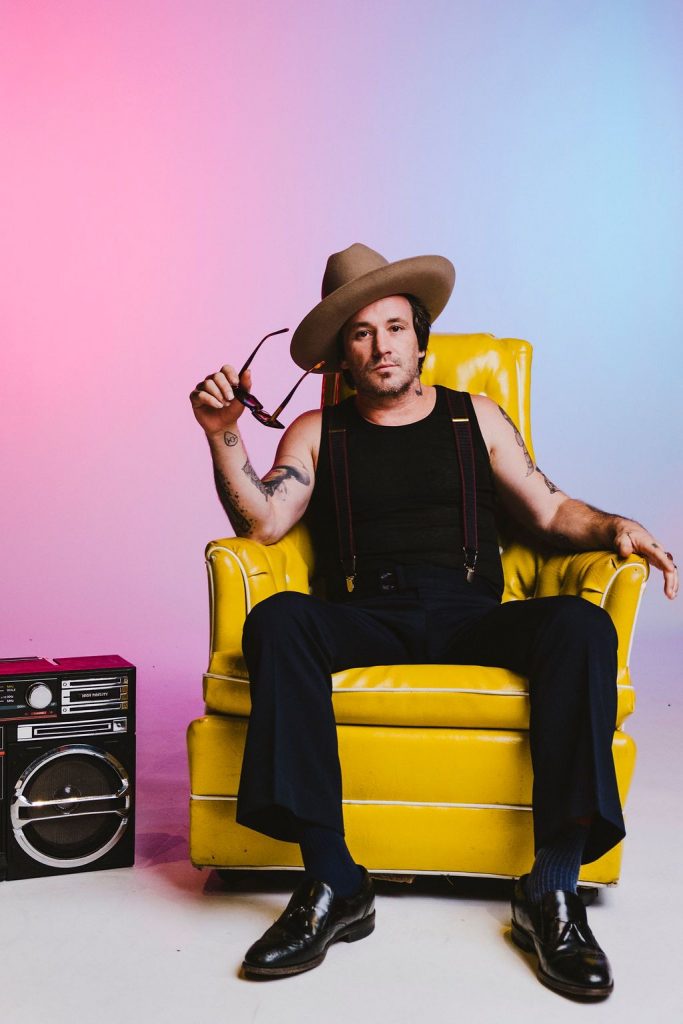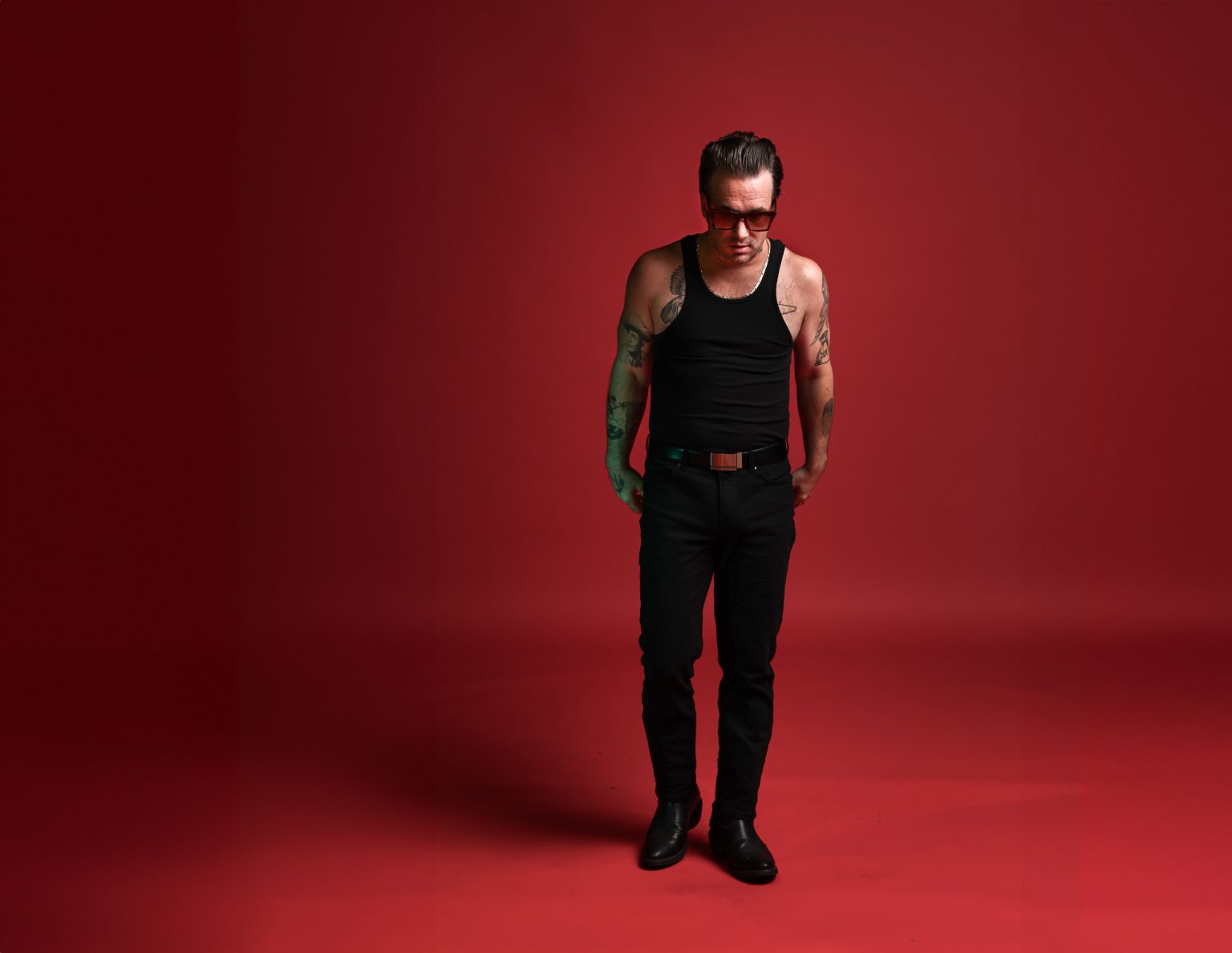Tony Holiday collects guest artists like I used to collect marbles as a kid; Albert Castiglia, James Harmon, Johnny Burgin, Bobby Rush, Lurrie Bell, Kid Ramos, Charlie Musselwhite, Kid Andersen, and others have recorded with him on his Porch Sessions albums. Each one brings a different facet to a bluesman too bursting with creativity for Salt Lake City to hold onto. Memphis was calling him like a siren in a wind storm.
“I had to find stuff at the record stores (in Salt Lake City) and things like that. And I got lucky enough when someone would come through town. They influenced the music I make. A couple of those albums are called Porch Sessions. I travelled the country for many years and recorded people like Musselwhite and James Harman on their front porches. I’d call them on the telephone and say, “Hey, can I come by your house and record you on your porch?” And those people that were on those records said yes. I learned a lot from them. That was how I learned how to play really just belting out songs on their front porch.”
Moving to Memphis didn’t hurt, either. “I didn’t have a hard time. I remember getting numbers and getting contacts. I texted this guy named Jim. I can’t believe how many dates he sent me. I said, ‘I wanna come play,’ and he said, ‘Are you available?’ He sent me at least 30 or 40 dates. And I said yes to ’em all.”
Freddie King’s “She’s A Burglar” is Tony’s latest single off his album Keep Your Head Up that drops on April 18th. “When we were adding a couple covers to the record it was already in my mindset. I was already playing it live. It wasn’t so much a love for Freddie King as it was for that whole record.”
“I fell in love with Memphis,” he shares, “and it was pretty easy. (Tony currently lives in Canandaigua, New York.) The move was harder to adjust to. Playing music in Memphis was a big learning experience for me, but it was pretty easy in Salt Lake when you’re in your hometown, you know?
“The advice I got (in Memphis) was maybe don’t let people know who you are by seeing your shows on the marquee, but go to shows for a few months after coming to town. You start going to shows and meeting people as a listener and supporter. So, that’s what I did, and no, it wasn’t hard for me. I was playing five or six nights a week on Beale St. as soon as I wanted to play.”
Tony’s songs are all short stories set to songs that are as much influenced by country music as they are classic electric blues artists like Freddie King. “I think country musicians and blues musicians are just storytellers. I didn’t find that in a lot of other genres. It just was easy for me to latch onto my imagination, and once I started learning about the characters, I just became infatuated with those guys. It was easy for me to latch onto my imagination.
“Doc Watson was a big one. As a kid as a guitar player, I remember the country circle telling me not to bend the strings so much, and then you find Doc. He’s bending all the strings. And you find out he’s borrowing all that stuff from guys like John Hurt – watching it on PBS as a kid and seeing it.”
Tony saw Mississippi John Hurt at The Newport Folk Festival. It was all about finding him there, and “just going to the public library at that point.” He continues, “It was just acoustic stuff that first got me with Robert Johnson, Son House, and Skip James. All those kinds of people were parallel to a guy sitting down playing guitar, telling stories, and then I found B. B. King. That’s when I first started listening to electric blues. At first it was just kind of country parallels if you will.”
It was at the 2016 International Blues Challenge that Tony made his big break. “The guys that beat me had a big Memphis choir. It was an eye opener. I had to reassess myself and my set after that. But the judge in one of those rooms was Eric Corne from 40 Below Records. He saw my set, judged me, liked it, and let me know that he liked it. I knew who he was, and of course I didn’t ask him to sign me, but I kept in touch with him, and he watched me grow. A few years after that he reached out to me.”

At age 40 Tony has already lived the life of a man twice his age. Getting there hasn’t always been easy. As a kid, he was tossed around in a dysfunctional family. “When you don’t have a dad, you gravitate towards male figures and stuff like that.” Opening for Willie Nelson was a high point. “I really felt connected. It was a big deal. I shook Willie Nelson’s hand, and I said the dumbest thing I’ve ever said, which was, “Hey, I opened your show,” and he said, “I know.” That was it. He was just walking through.
“I think success in this world is related to doing what you want to do and then going to sleep and doing it again the next day. I’m just lucky I was able to take a lot of bad things that happened in my life. I don’t know how to say it. I don’t know what I did. I avoided it. I raised my children the opposite way I was raised.
“I think the greatest purpose in this life is what you do for your fellow man. How do you improve your character as a successful person? Those two things will keep a person alive and help people.”


